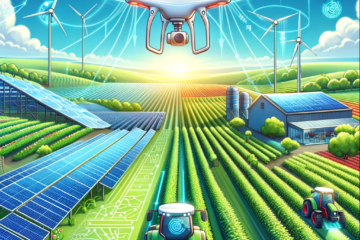As our society enters a new era of sustainability and environmental responsibility, we find ourselves in search of novel ways to tackle the challenges posed by climate change, overpopulation, and the unsustainable use of natural resources. A solution that often goes unnoticed in this search is the transformative power of big data. Leveraging big data, combined with advances in technology, can play a pivotal role in steering our planet towards a sustainable future.
Understanding Big Data
Big data refers to the massive volume of structured and unstructured data produced every day. Its value lies not only in its size but also in its potential for deep analysis, yielding insights that can inform better decisions and strategic business moves.
Big Data and Sustainability: The Nexus
The use of big data in sustainability is a perfect example of how technology can benefit the environment. Big data helps us to understand patterns, trends, and associations related to human behavior and interactions with the environment. This deeper understanding can guide us to more sustainable actions and policies.
Big Data in Energy Efficiency
Big data analytics can significantly impact energy consumption, a major concern for sustainability. Smart grids and smart meters, powered by big data, provide real-time information about energy use, helping to reduce energy waste and increase efficiency. It also allows the integration of renewable energy sources into the grid, paving the way for a cleaner, more sustainable energy future.
Predicting and Adapting to Climate Change
Big data is instrumental in enhancing our understanding of climate change. By analyzing vast amounts of meteorological data, we can predict future climate patterns, aiding in planning for and mitigating the effects of climate change.
Waste Management and Big Data
Big data can dramatically improve waste management systems. By tracking waste generation and disposal patterns, we can develop more effective recycling strategies, identify areas for waste reduction, and optimize waste collection routes for efficiency and reduced carbon emissions.
Agriculture and Big Data
Precision agriculture, enabled by big data, can lead to more efficient use of water, fertilizer, and other inputs, reducing the environmental impact of farming and increasing food security.
The Future of Sustainability with Big Data
As we continue to generate data at an exponential rate, the potential of big data for sustainability will only grow. However, harnessing its full potential requires investments in infrastructure, skills, and regulations to ensure data privacy and security. In addition, bridging the digital divide, both within and between countries, is essential to ensure that the benefits of big data for sustainability are shared by all.
Conclusion
Big data is more than a buzzword in the digital era; it’s a game-changer for sustainability. It has the power to steer societies towards a more sustainable future, where resources are used wisely, waste is minimized, and our impact on the environment is mitigated. Let’s embrace big data and let technology play its role in ensuring a sustainable future for all.




